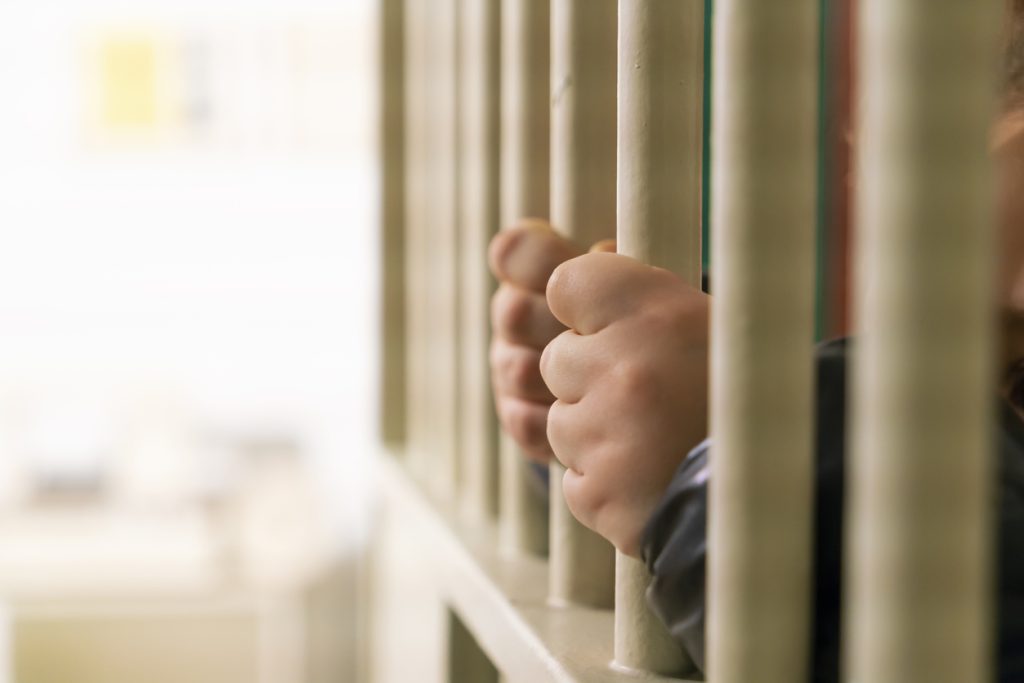Increases in youth detention will see discrimination continue against those with a brain injury

Last month marked the start of construction of a new 80-bed youth detention centre at Woodford, this is part of the Queensland Government’s attempt to be ‘tough on crime.’ This is just one of the three new youth detention centres the Queensland Government is building across the state. Construction of a 40-bed facility near Cairns and a 50-bed facility at Wacol are also being progressed.
Synapse believes the building of these detention centres for youth is uninformed and will see a harsher cost to the lives of many children and communities across the state, including those who have Fetal Alcohol Spectrum Disorder (FASD), brain injury, or other cognitive impairments.
Little to no consultation was conducted by the Queensland Government to engage with organisations that work to support youth exiting the justice system. It’s also clear the Government isn’t consulting with Indigenous young people or those impacted by brain injury, whom our system continually discriminates against and criminalise.
Fearmongering to take the blame off these systems
The building of these detention centres and their stance of being ‘tough on crime’ is blatant fearmongering to convince the public that the problem is troubled youth, instead of the systems that create and perpetuate the vulnerabilities people are experiencing.
Too frequently, Synapse sees young people with brain injury failed by the school system and the out-of-home care system – with many finding themselves in the youth justice system. These systems continue to exclude and isolate them and amplify vulnerabilities.
Many systems have no screening to see if these young people are impacted by brain injury or a cognitive disability. On top of this, there’s little to no support for youth once they reintegrate back into society to encourage positive outcomes and limit their likelihood of ending up back in youth detention.
The impact of detention on youth with a brain injury
Currently, there are disproportionate numbers of people living with brain injuries in prisons. People with disabilities, particularly cognitive or psychosocial disability, are overrepresented in the criminal justice system in Australia— making up about 50 per cent of people entering prison*. This shows there is a need at all levels of the criminal justice system to understand brain injury.
When you have a brain injury you may struggle with impulsivity, increased aggression or anger, poor self-monitoring, lack of inhibition, impulsivity or social cues, and memory loss – which can often be misinterpreted by police and lead to imprisonment. Youth justice is exacerbated by a lack of understanding and, of the skills required to support the complex needs of young people, especially those with histories of trauma, neglect, and brain injury*. This leads to discrimination and high numbers of people living with brain injury entering Australia’s prisons and justice systems.
The minimum age of criminal responsibility in Queensland is currently 10 years old. Many advocates (including Synapse) believe this age should be increased to 14 years to align with the United Nations Committee on Rights of the Child as a child’s prefrontal cortex under 14 years old is still developing. This means they have an incomplete capacity to plan, foresee consequences, or control their impulses.
How youth with a brain injury need to be supported
Synapse is focused on working to break the cycle of vulnerability which can start in childhood. Working with individuals, researchers, communities, government departments and correctional services we aim to change the way people living with a brain injury are treated and end the discrimination experienced through various systems.
Australian State and Territory governments need to ask themselves why they need to build so many detention centres instead of looking at possible alternatives in communities. If these governments shift focus to supporting young people with brain injuries or undiagnosed brain injuries, this will ensure less youth are stuck in a reoffending cycle throughout their lives.
If a young person does offend, it is important to screen for a brain injury upon entry to youth detention to help avoid the likelihood of reoffending. If a child or young person is already in youth detention, they need to be supported to access employment, housing, and health care and to create positive connections to the community upon release.
It is only by understanding why people living with brain injury are overrepresented in both the youth and adult prisons that society begins to transform, working to decrease rates of crime and elevating the want to build so many correctional facilities.
Sources*:
- Human Rights Watch. (2018). “I Needed Help, Instead I Was Punished” Abuse and neglect of prisoners with disabilities in Australia. Retrieved from: https://www.hrw.org/report/2018/02/06/i-needed-help-instead-i-was-punished/abuse-and-neglect-prisoners-disabilities
- NSW Health and NSW Juvenile Justice (2016). 2015 Young People in Custody Health Survey: Key Findings for all Young People, Sydney: NSW Health and Juvenile Justice.
- Lansdell, G., Saunders, B., and Eriksson, A. (2022). Young people with acquired brain injury: Preventing entrenchment in the criminal justice system, Report to the Criminology Research Advisory Council Grant: CRG 09/18–19, June. Available at: aic.gov.au/sites/default/files/2022-06/crg_young_people_with_acquired_brain_injury_v4_-_250522.pdf